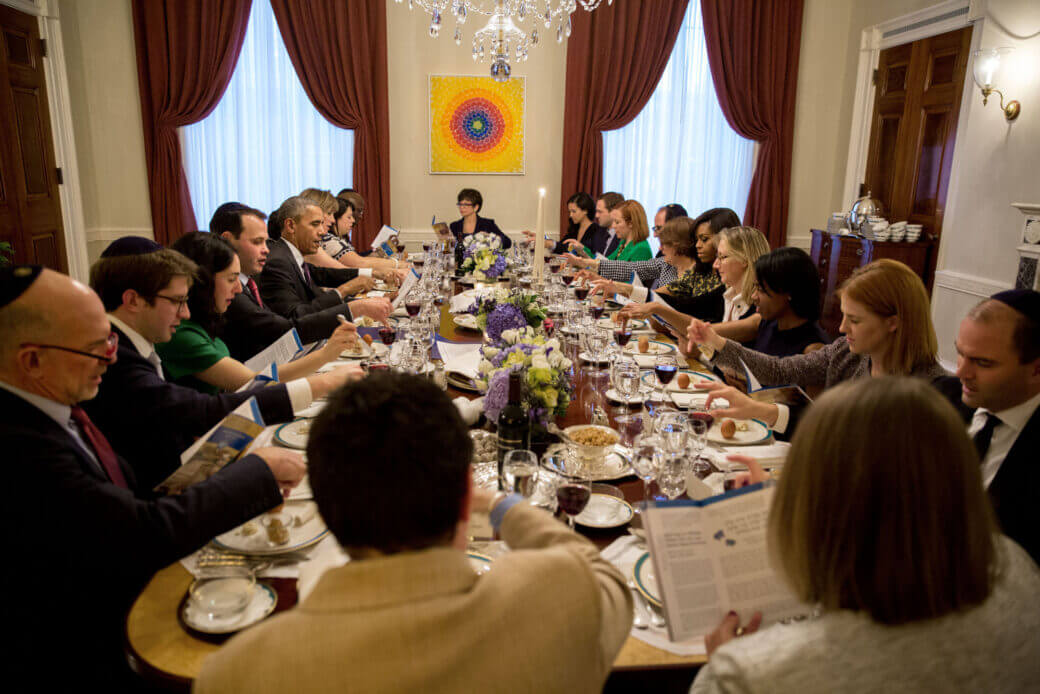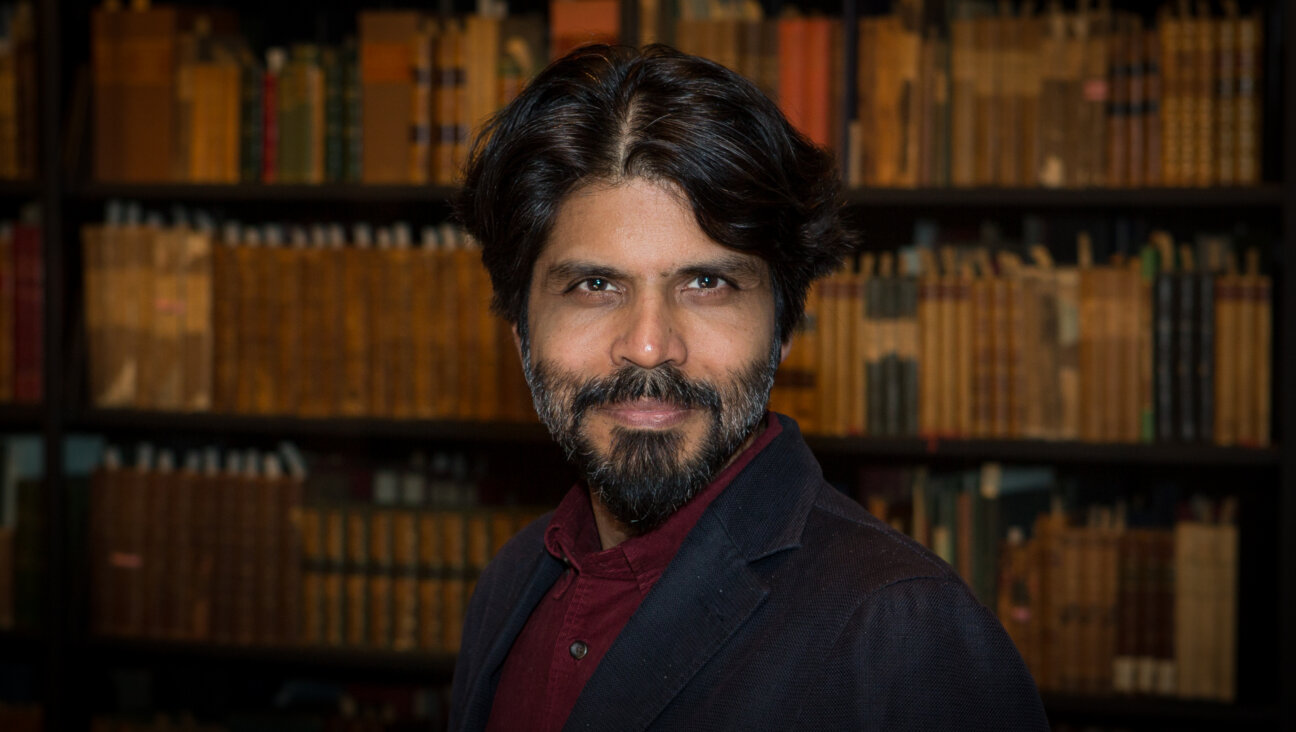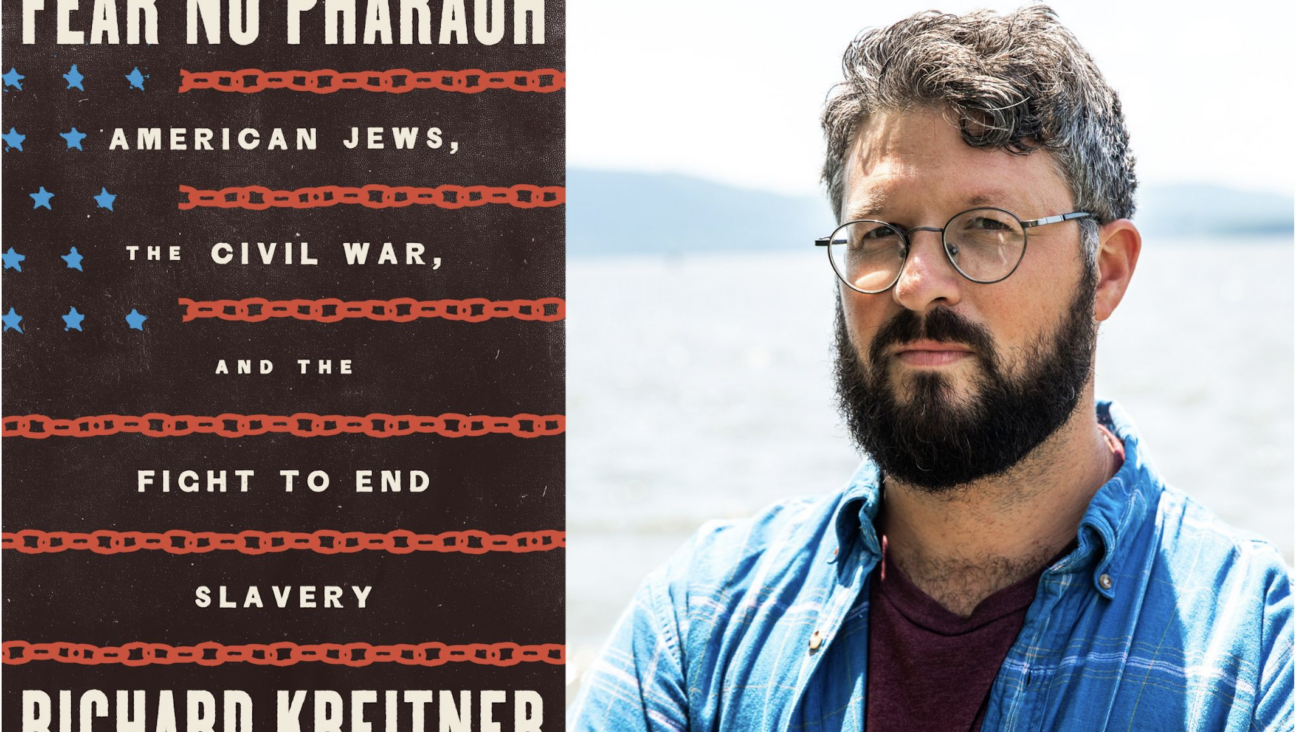A Tale of Modesty and Bravery
For a change, this is not going to be a column about language. It’s going to be about modesty and bravery.
Two weeks ago, you’ll recall, I wrote about the Yiddish word gikh, “fast,” after receiving a letter from a correspondent signed “Brodetzky” who mentioned, in two tantalizingly brief sentences, having given some uncomprehending German prisoners the order “Makh gikh” during a battle near the Rhine in 1945. At the column’s end, I appealed to Mr. Brodetzky to tell us more. A few days ago, I received the following e-mail from him, which I reprint verbatim:
“Makh gikh was after we ambushed them — they were stunned and in shock — and I wanted to get them back quickly as prisoners and for intel briefing. I put them in charge of one of my platoon who himself had been in the Hitler Jugend. His family had moved to USA in late ’30s. He was 19 — as [was] most of my platoon of 40. I was 21. My squad leaders were in their 30s. Not one Jew among them all. As I continued with a handful of my men into the woods toward the Rhine river we got pinned down by snipers in the trees. My scout, a hillbilly from Appalachia, got a bullet between his eyes. I hit the ground and got a bullet thru my helmet that then ricocheted into my foot. That is another story, abi gezunt [Yiddish for “We should be healthy and well”]. This was March 24, 1945, just before Pesach.”
It’s all in the same telegraphic style as Mr. Brodetzky’s first e-mail. He is a man of few words — so few, in fact, that he didn’t bother to mention General Order Number 23 of the 71st Infantry Division of the U.S. Army, dated May 22, 1945. This communiqué reads:
Award of the Silver Star
Moses Brodetzky, 0557667, 2nd Lieutenant, Infantry, Company E, 5th Infantry, for gallantry in action against the enemy on March 24, 1945, in the vicinity of Westheim, Germany. During the attack on Westheim, the advance of the 2nd Battalion, 5th Infantry, had been held up for ninety minutes by well-entrenched enemy riflemen and machine gunners, who inflicted severe casualties on Companies E and G of the battalion.
With utter disregard for personal safety, Lieutenant Brodetzky led his platoon forward to a stream where intense fire prevented the platoon from crossing. Lieutenant Brodetzky then selected four men from the platoon and made a successful crossing to continue advancing until contact was made with the enemy’s left flank. At this point he demanded the enemy [sic] to surrender. Several of the enemy troops obeyed his order, but the others opened fire on Lieutenant Brodetzky. With determination and boldness, Lieutenant Brodetzky continued to advance, destroying the machine guns, capturing nineteen enemy soldiers, and killing four, including one German officer.
Lieutenant Brodetzky was subsequently wounded in the foot and leg, but returned unaided to his unit with information that materially aided in the advance of the battalion and routing of the enemy.
Lieutenant Brodetzky’s courageous leadership, devotion to duty, and gallantry in action exemplifies the tradition of the armed forces.
Abi gezunt indeed!
You may wonder how I know all this. It’s courtesy of Yisrael Medad of the settlement of Shiloh in Israel, who sent me the links to a blog called “bnaielim” (which is Hebrew for “sons of the gods”), an Internet site dedicated to stories of Jewish heroism. Moreover, it turns out that Mr. Brodetzky’s Silver Star was not his only decoration; he was also awarded a medal for bravery during Israel’s War of Independence. This happened during the battle of Ramat Rachel, a kibbutz just south of Jerusalem, where, in May 1948, an attack by the Egyptian army and the Jordanian Arab Legion was beaten back by a joint Irgun-Haganah force after bitter fighting in which the kibbutz changed hands several times. As described by an officer who participated in the battle:
“The many casualties sustained vastly reduced our numbers. One of the injured officers appealed to his wounded comrades, explaining that if the Arabs reached the dining hall [of the kibbutz], he would give them weapons and they had to fight to the last bullet. This was Moshe Brodetzky, who had been an officer in the U.S. Army in World War II. He had come to study in Jerusalem at the Hebrew University, and when fighting broke out, had joined the Irgun. He was wounded while on lookout on the roof of the dining hall, and, after being bandaged, he had immediately gone up to the roof again. Only when he was hit for the second time did I order him to remain in the dining hall with the other wounded men.”
Mr. Brodetzky, who shouted what he did at his German prisoners because he wasn’t aware that the medieval adverb gich had dropped out of German while remaining in Yiddish, didn’t think we needed to know all this. I disagree. And I thank Mr. Medad for bringing it to our attention.
Questions for Philologos can be sent to [email protected].
The Forward is free to read, but it isn’t free to produce

I hope you appreciated this article. Before you go, I’d like to ask you to please support the Forward.
At a time when other newsrooms are closing or cutting back, the Forward has removed its paywall and invested additional resources to report on the ground from Israel and around the U.S. on the impact of the war, rising antisemitism and polarized discourse.
Readers like you make it all possible. We’ve started our Passover Fundraising Drive, and we need 1,800 readers like you to step up to support the Forward by April 21. Members of the Forward board are even matching the first 1,000 gifts, up to $70,000.
This is a great time to support independent Jewish journalism, because every dollar goes twice as far.
— Rachel Fishman Feddersen, Publisher and CEO
2X match on all Passover gifts!
Most Popular
- 1

Film & TV What Gal Gadot has said about the Israeli-Palestinian conflict
- 2

News A Jewish Republican and Muslim Democrat are suddenly in a tight race for a special seat in Congress
- 3

Fast Forward The NCAA men’s Final Four has 3 Jewish coaches
- 4

Culture How two Jewish names — Kohen and Mira — are dividing red and blue states
In Case You Missed It
-

Fast Forward Secretive GOP firm distorts Democratic candidate’s views on Israel in NJ governor race
-
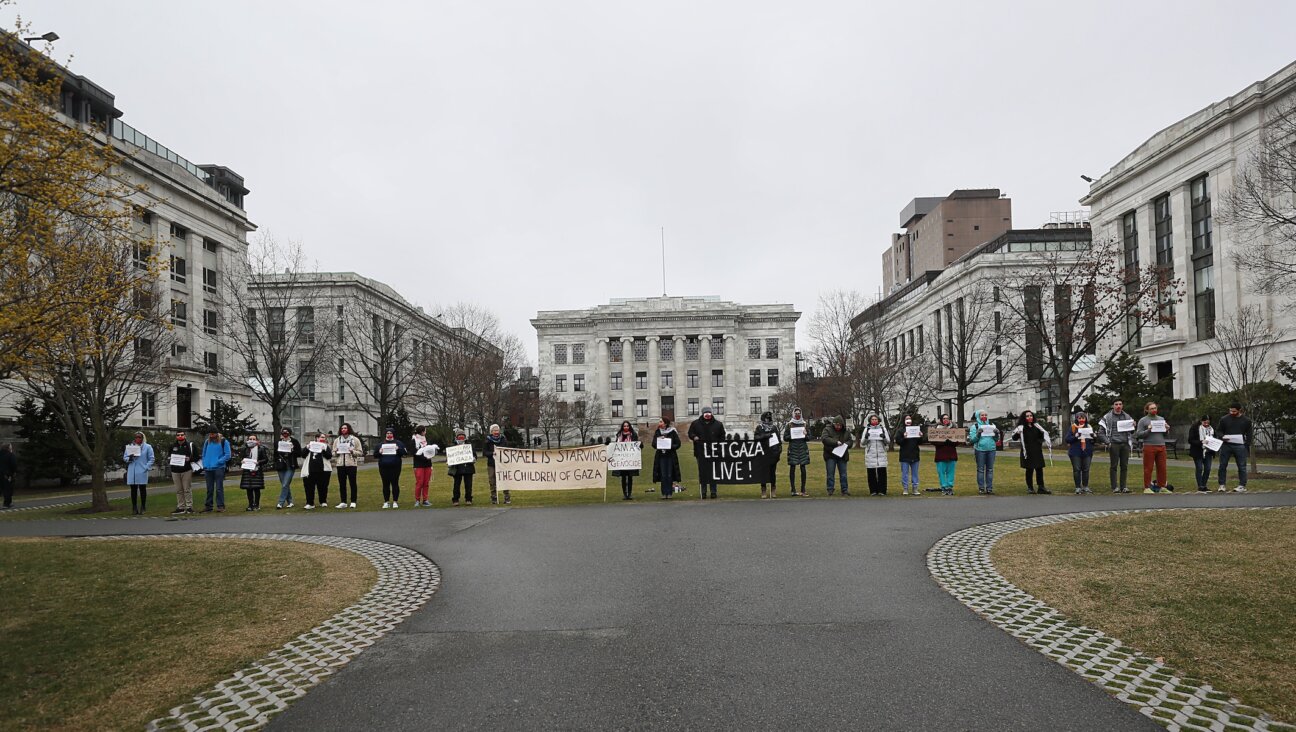
Fast Forward Trump administration to review nearly $9 billion in Harvard funding over campus antisemitism
-
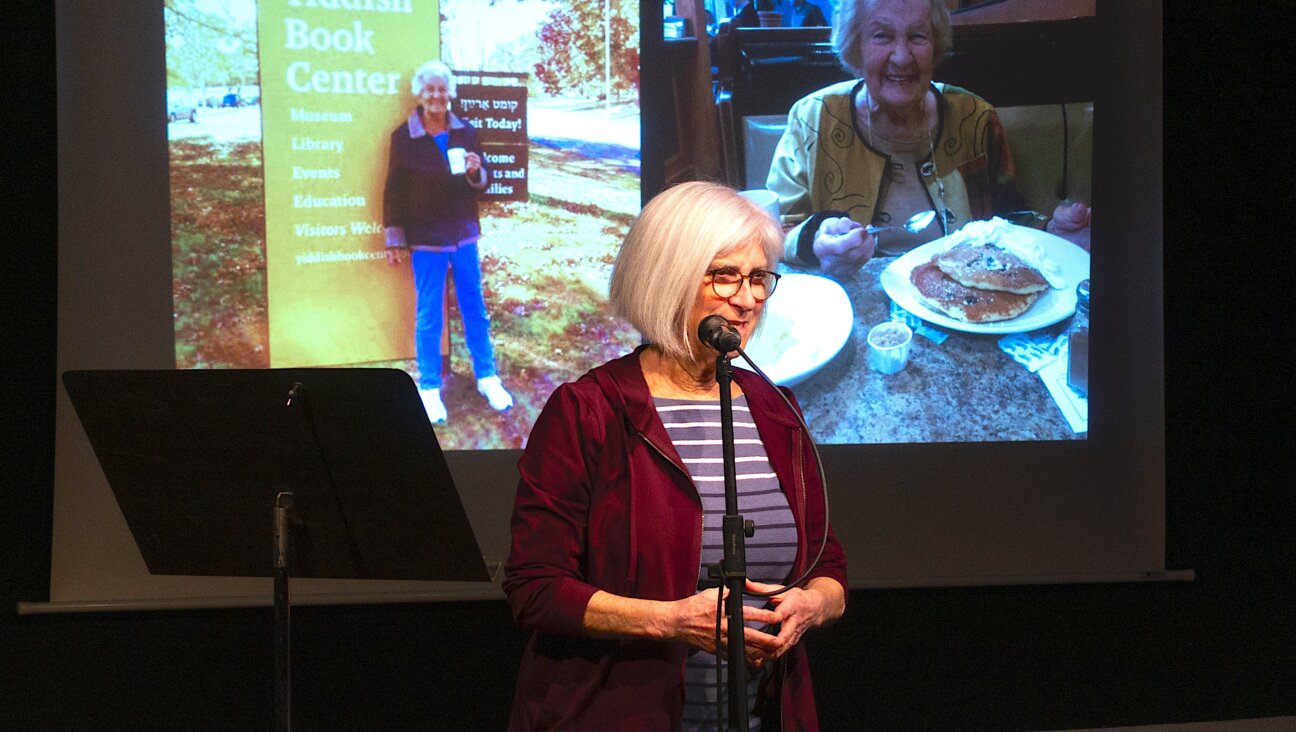
Yiddish World Yiddish fans in Berlin launch a Yiddish open mic series
-

Fast Forward Cornell pro-Palestinian student leader opts to leave US, as Columbia ‘self-deportee’ makes her case to return
-
Shop the Forward Store
100% of profits support our journalism
Republish This Story
Please read before republishing
We’re happy to make this story available to republish for free, unless it originated with JTA, Haaretz or another publication (as indicated on the article) and as long as you follow our guidelines.
You must comply with the following:
- Credit the Forward
- Retain our pixel
- Preserve our canonical link in Google search
- Add a noindex tag in Google search
See our full guidelines for more information, and this guide for detail about canonical URLs.
To republish, copy the HTML by clicking on the yellow button to the right; it includes our tracking pixel, all paragraph styles and hyperlinks, the author byline and credit to the Forward. It does not include images; to avoid copyright violations, you must add them manually, following our guidelines. Please email us at [email protected], subject line “republish,” with any questions or to let us know what stories you’re picking up.







